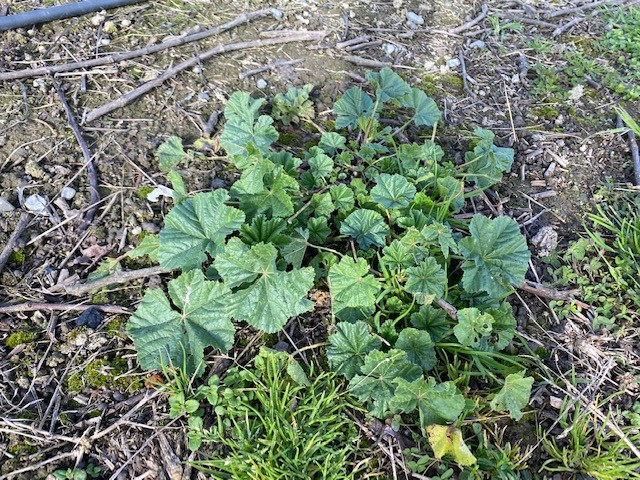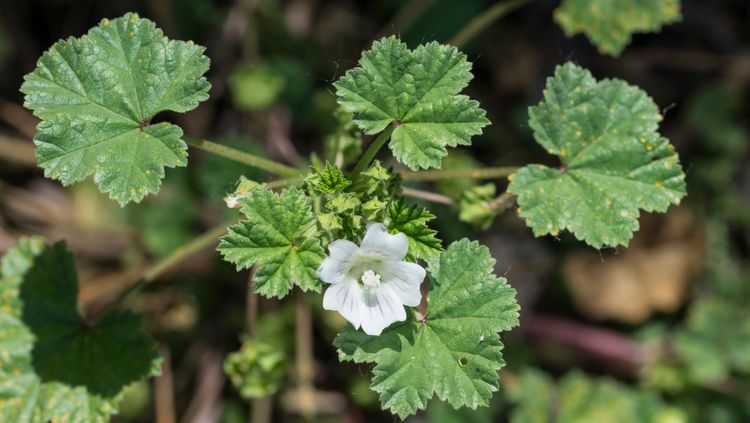The Common Mallow, scientifically known as Malva sylvestris, is a perennial plant valued for its potential health-supporting properties. Traditionally used in various cultures, this plant is gaining recognition in modern wellness for its versatility and nutritional benefits. However, while it shows promise, claims regarding its medicinal effects should be approached cautiously and supported by scientific evidence.

Nutritional Profile
Common Mallow contains vitamins (notably C and E), minerals like magnesium, calcium, and potassium, as well as dietary fiber and antioxidants such as flavonoids. These components can contribute to overall health by supporting immune function and reducing oxidative stress. However, the exact levels of these nutrients may vary depending on growing conditions and preparation methods.
Potential Health Benefits
1. Anti-inflammatory and Soothing Properties
Common Mallow is known for its high mucilage content, which gives it soothing properties. This can help alleviate irritation in the throat, skin, and digestive tract. Some studies suggest that its extracts may have mild anti-inflammatory effects, potentially benefiting conditions like skin irritation or mild inflammation. However, its role in managing chronic inflammatory diseases like arthritis is not well-supported by robust scientific data.
2. Respiratory Support
The mucilage in Common Mallow may help soothe the throat and reduce coughing, making it a popular ingredient in herbal teas for colds and mild respiratory discomfort. It can also assist in clearing mucus from the airways, providing relief for temporary conditions like sore throats or mild bronchitis.
3. Digestive Health
Mallow’s mucilage content can act as a natural demulcent, providing a protective coating for the stomach and intestines. This may help ease mild digestive discomfort or occasional constipation. However, claims about its efficacy in treating conditions like irritable bowel syndrome (IBS) or ulcers remain speculative and require more research.
4. Skin Health
Common Mallow is frequently used in skincare for its moisturizing and soothing properties. It may help hydrate dry skin, alleviate minor irritation, and promote the healing of small wounds or burns. Antioxidants in the plant may also support skin health by protecting against oxidative stress, although its anti-aging effects are not conclusively proven.
5. Antioxidant Effects
The antioxidants in Common Mallow, including flavonoids and phenolic compounds, may help neutralize free radicals in the body. This can potentially support cellular health and reduce the risk of oxidative stress-related conditions. However, its impact on long-term disease prevention, including cancer, has not been firmly established.
6. Immune System Support
Vitamin C and other compounds in Common Mallow can contribute to immune health by supporting the body’s natural defenses. Some studies suggest mild antimicrobial properties in the plant, which may help in preventing minor infections.
Caution and Limitations
While Common Mallow has a rich history in traditional medicine and some promising properties, it should not be considered a cure or primary treatment for any medical condition. Scientific evidence supporting many of its claimed health benefits is still limited, and more research is needed to confirm its efficacy and safety for therapeutic use. Always consult a healthcare provider before using Common Mallow, especially if you are pregnant, breastfeeding, or taking medications.
Conclusion

The Common Mallow (Malva sylvestris) is a versatile plant with potential health-supporting properties, particularly in soothing inflammation, supporting respiratory health, and benefiting skin and digestive wellness. While its traditional uses are compelling, modern claims should be tempered with scientific scrutiny. Incorporating Common Mallow into your diet or skincare routine can be a valuable addition to a healthy lifestyle, but it should complement, not replace, conventional medical care.
In summary, Common Mallow offers promising benefits, but responsible use and professional advice are key to maximizing its potential while ensuring safety.

